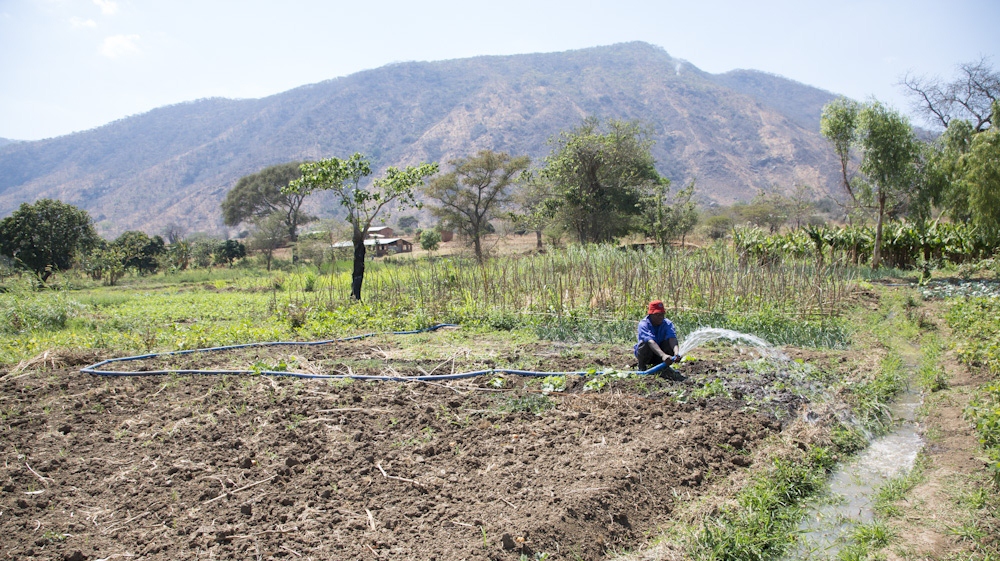
Where we work
Over the 60 years we have been in operation we have worked across multiple countries in Africa, Asia, Central America and Eastern Europe. One thing that unites the rural communities we work with is their desire to build a better future free from hunger, poverty and discrimination.
Our choice of where we work is based on an assessment of the needs of the community and the local context, ensuring that our expertise and experience is appropriate to enable people to realise their own aspirations.
You can find out more about our work in each country in our latest annual report
Guatemala
Guatemala has one of the highest childhood malnutrition and stunting rates in the world, with almost half of children showing signs of malnutrition. However, among Indigenous Maya communities, malnutrition and health outcomes are significantly worse.
Most rural Indigenous Maya practice subsistence farming, and their income and nutrition are heavily dependent on maize and beans grown on their smallholdings. In recent years inflation has significantly increased the price of basic food, especially protein sources, by around 25-30%; and raised living costs overall.
The climate crisis has brought about more challenges; frequent extended dry periods have affected planting dates for subsistence farmers, and sudden bouts of heavy rainfall or hail often destroy crops.
Many Guatemalans live precariously from week to week. Reports of families eating twice a day rather than three times have increased, and cases of starvation in Maya communities recorded.
Myanmar
Myanmar is home to 135 ethnic groups, and the world’s longest running civil war. In 2011 the country began to transition away from full military rule with the hope of democratic reforms. However, a 2021 military coup returned Myanmar to military rule. All the Special Regions along the China border in which we work have been affected by ongoing armed conflict for decades.
Access to nutritious food is a severe problem for pregnant and lactating people and children under five years old. Many internally displaced people in conflict-affected areas cannot get enough food to survive. In the seven special regions of Myanmar where we work, many of the villages are unable to access clean water.
Somaliland
Somaliland is an autonomous territory; they declared independence from Somalia in 1991. Despite its lack of recognition by the international community, they face many multifaceted challenges. We have a particular focus on marginalised communities including pastoralists and internally displaced people.
Many people in Somaliland have become internally displaced due to the climate crisis, or conflict. Somaliland has been severely affected by drought in recent years and has high levels of gender-based violence.
Rising inflation, partly due to recent droughts, and cost of living crises created further challenges in recent years, severely affecting health outcomes due to lack of nutritious food.
Malawi
Whilst no longer formally part of Find Your Feet UK, having become an independent NGO in 2016, we are thrilled to see how the work of Find Your Feet Malawi has continued to develop, and support them financially on some of their projects.
Malawi remains one of the poorest countries in the world, with 70.1% of the population living on less than £1.70 ($2.15) a day as of 2019 (World Bank). Most of the population resides in rural areas and depends on agriculture for survival, facing challenges like lack of irrigation, dependency on costly fertilisers, and weather patterns are becoming unpredictable due to the climate crisis meaning farmers are unable to make informed decisions about planting.
In the north, where Find Your Feet Malawi operates, over half of the families experience year-round food shortages. Our work focuses on building community capacity for long-term change, promoting climate-smart agricultural techniques such as growing drought-tolerant crops, mulching, pit planting, mixed cropping, and agroforestry to ensure food security and sustainable livelihoods.
Looking back at our work in India
For nearly 35 years we worked with some of the most marginalised and isolated communities in India. Working with communities to strengthen their organisational capacity and voice, enabling them to access land and resources; and to engage in ongoing dialogue with government officials to ensure that they meet their obligations to deliver critical services.
We supported the formation of women’s self-help groups. These are safe spaces for women to share experiences, identify priorities, establish activities to earn or boost their income and overcome some of the barriers to women’s equality and participation in their communities.
Since recognising a shift in institutional funding opportunities, making extremely difficult to secure funding for our work in India, we dedicated efforts to planning for the time when we could no longer work with these communities. These efforts focused on equipping communities with skills and building infrastructure to ensure they continue to benefit after we can no longer work in India. Sadly, our last project ended in India in September 2022.
Sources:
https://data.worldbank.org/indicator/SI.POV.DDAY?locations=MW





